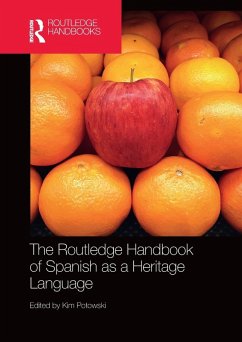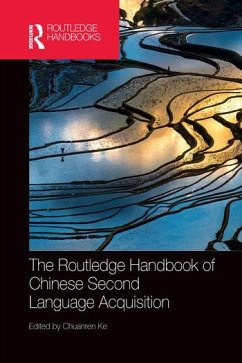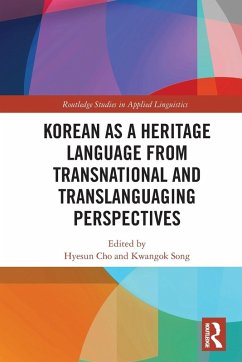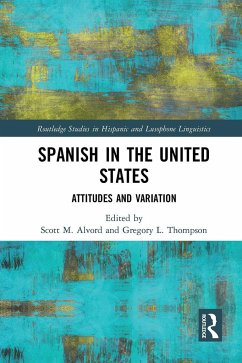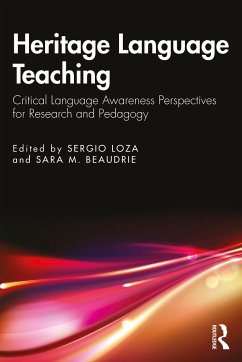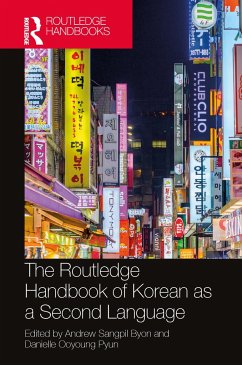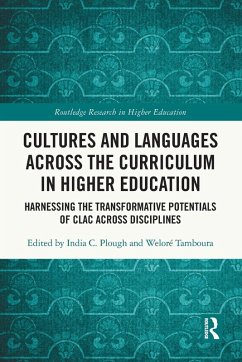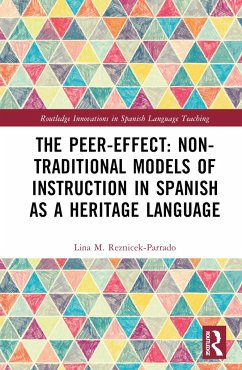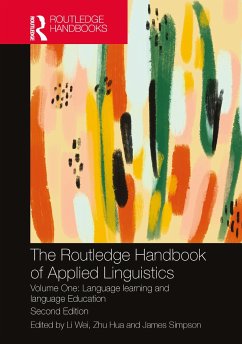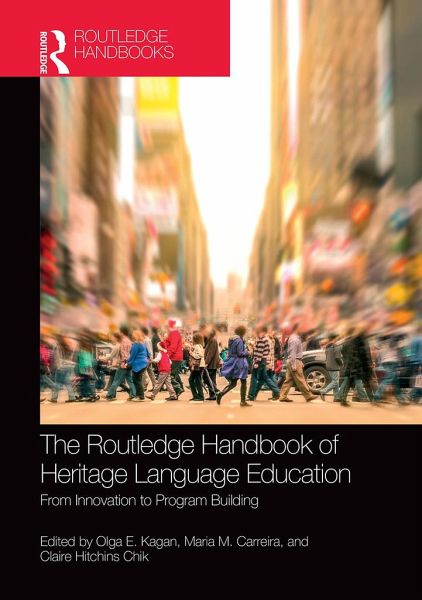
The Routledge Handbook of Heritage Language Education
From Innovation to Program Building
Herausgegeben: Kagan, Olga E.; Carreira, Maria M.; Hitchens Chik, Claire
Versandkostenfrei!
Versandfertig in 6-10 Tagen
50,99 €
inkl. MwSt.

PAYBACK Punkte
25 °P sammeln!
The Routledge Handbook of Heritage Language Education provides the rapidly growing and globalizing field of heritage language (HL) education with a cohesive overview of HL programs and practices relating to language maintenance and development, setting the stage for future work in the field. Driving this effort is the belief that if research and pedagogical advances in the HL field are to have the greatest impact, HL programs need to become firmly rooted in educational systems. Against a background of cultural and linguistic diversity that characterizes the twenty-first century, the volume out...
The Routledge Handbook of Heritage Language Education provides the rapidly growing and globalizing field of heritage language (HL) education with a cohesive overview of HL programs and practices relating to language maintenance and development, setting the stage for future work in the field. Driving this effort is the belief that if research and pedagogical advances in the HL field are to have the greatest impact, HL programs need to become firmly rooted in educational systems. Against a background of cultural and linguistic diversity that characterizes the twenty-first century, the volume outlines key issues in the design and implementation of HL programs across a range of educational sectors, institutional settings, sociolinguistic conditions, and geographical locations, specifically: North and Latin America, Europe, Israel, Australia, New Zealand, Japan, and Cambodia. All levels of schooling are included as the teaching of the following languages are discussed: Albanian, Arabic, Armenian (Eastern and Western), Bengali, Brazilian Portuguese, Chinese, Czech, French, Hindi-Urdu, Japanese, Khmer, Korean, Pasifika languages, Persian, Russian, Spanish, Turkish, Vietnamese, and Yiddish. These discussions contribute to the development and establishment of HL instructional paradigms through the experiences of "actors on the ground" as they respond to local conditions, instantiate current research and pedagogical findings, and seek solutions that are workable from an organizational standpoint. The Routledge Handbook of Heritage Language Education is an ideal resource for researchers and graduate students interested in heritage language education at home or abroad.





